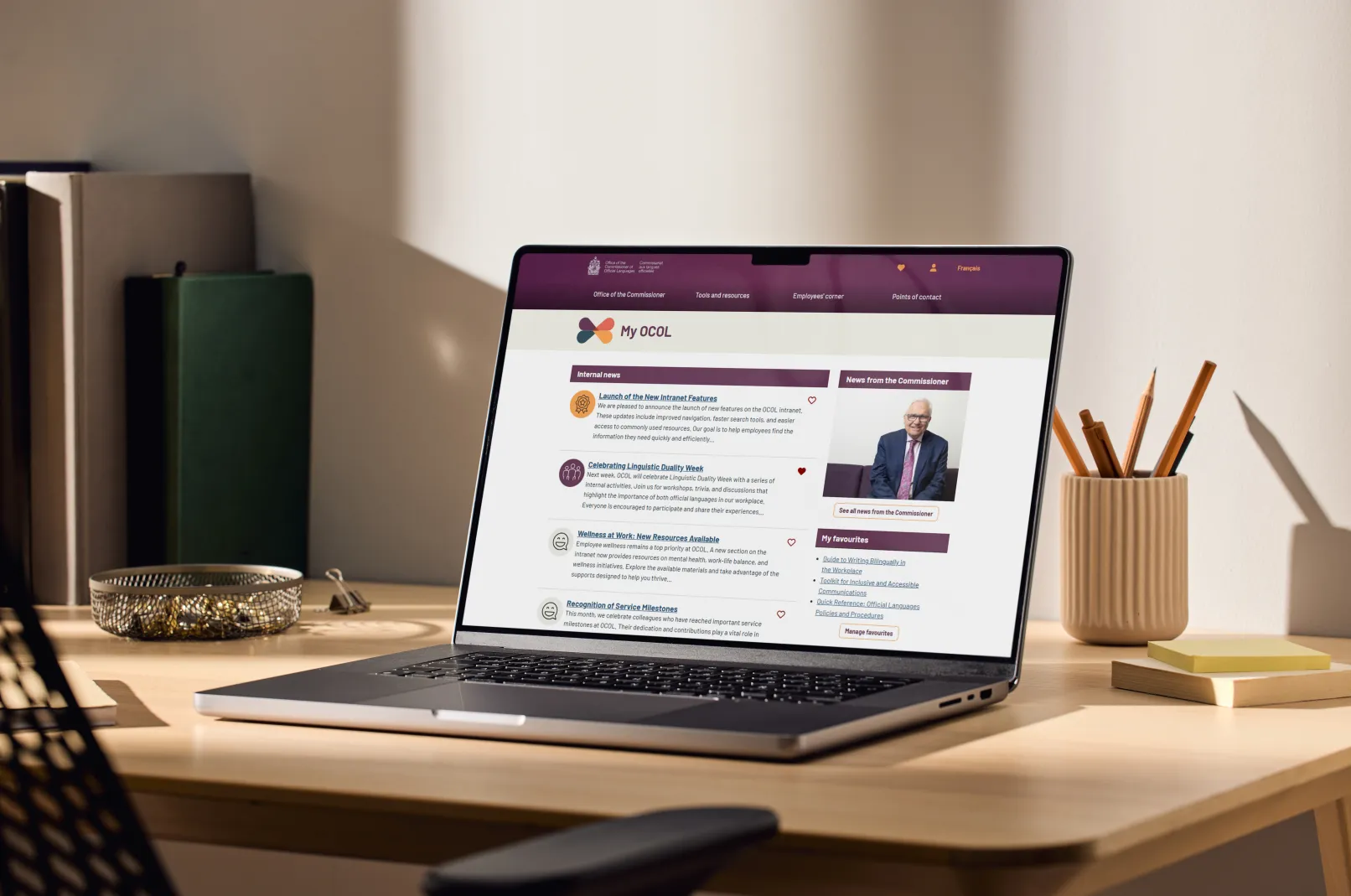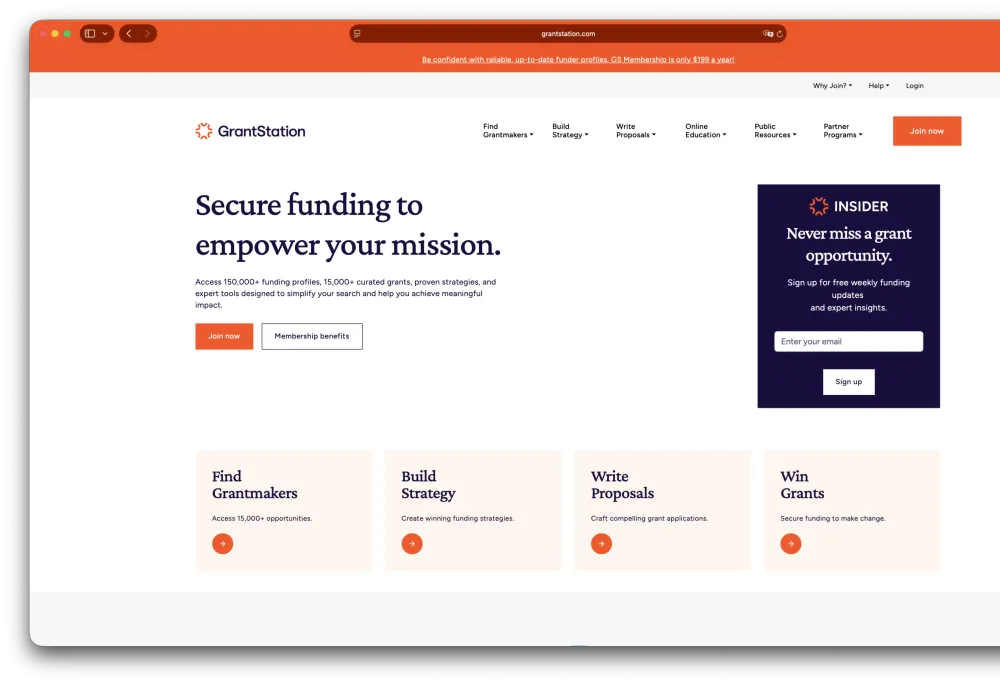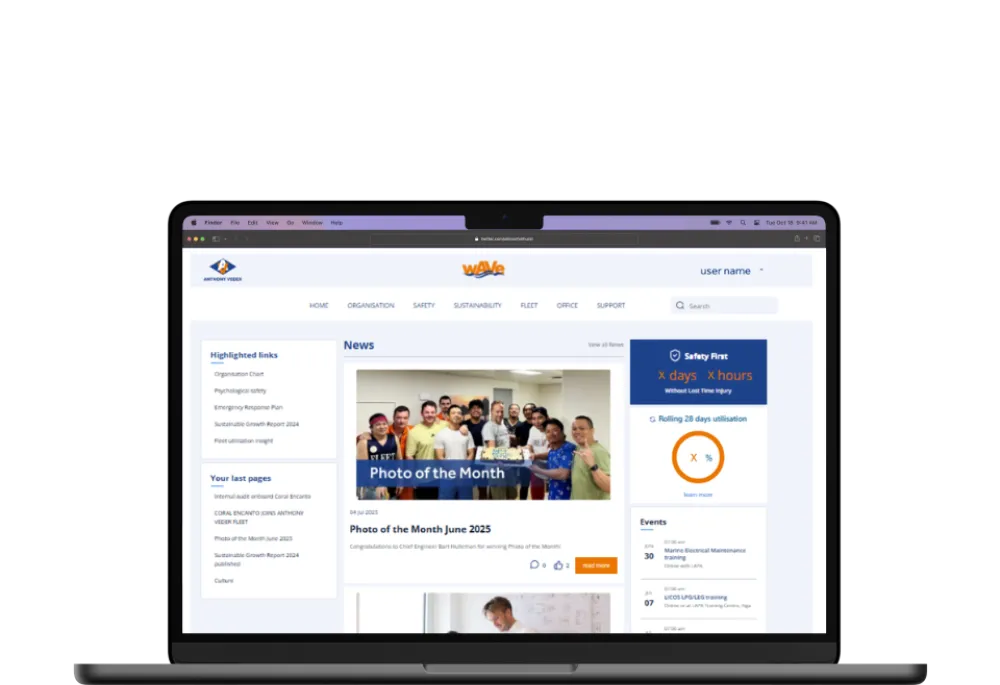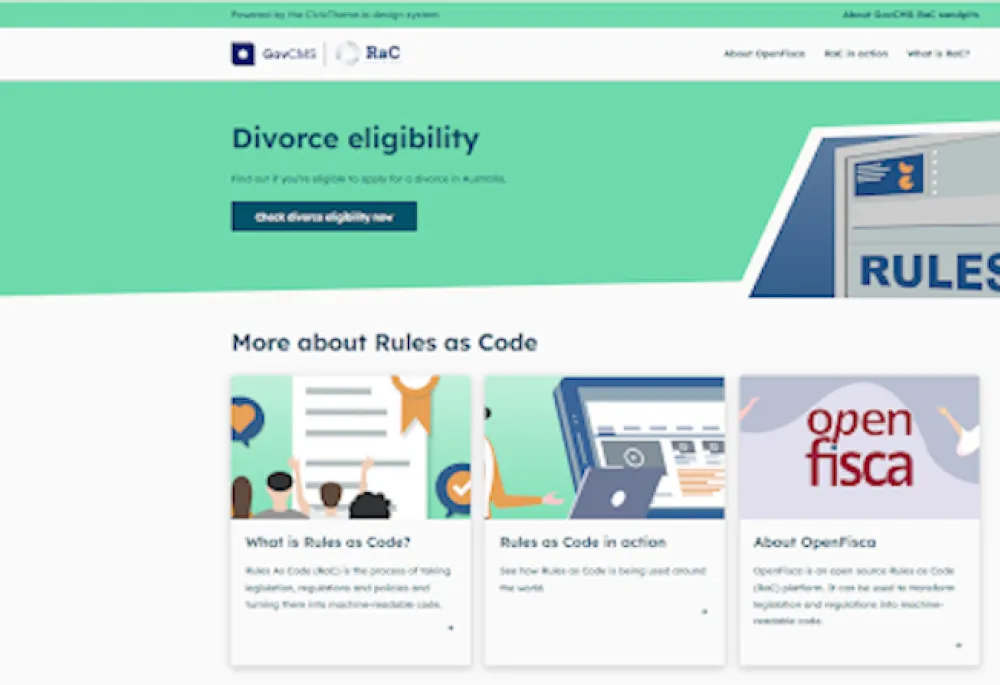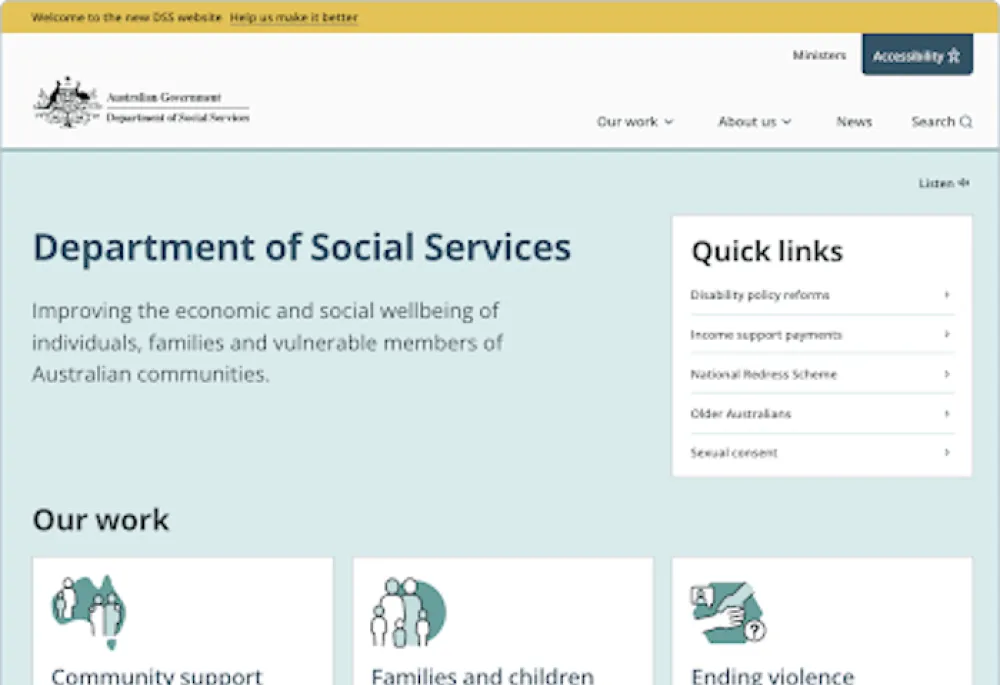Visit the site
Visit the siteOrganizations Involved
Community contributions
-
Co-maintained Simple Favorites. Upgraded to work with the latest Drupal 10/11, supporting anonymous (cookie) and authenticated (database) users; added tests and documentation.
-
WxT field formatter for WET-BOEW image galleries. Contributed a field formatter plugin that outputs accessible WET-BOEW Media galleries and supports bulk image upload to speed up gallery creation.
-
Accessibility/usability patches. Submitted fixes aligned with WCAG and improvements to the Drupal WxT distribution in general.
The Office of the Commissioner of Official Languages (OCOL) set out to modernize its aging intranet so employees could quickly find information, collaborate across teams, and access services in both English and French. The previous platform had grown difficult to navigate and update, which affected content governance, searchability, and day-to-day productivity. OCOL needed an accessible, secure, and future-ready intranet that aligned with Government of Canada standards while remaining easy for non-technical editors to manage.
Cinder Systems Corp. partnered with OCOL to design and deliver a new Drupal-powered intranet that emphasizes usability, accessibility, and bilingual content from the start. The solution includes a clear, taxonomy-driven information architecture; fast, relevant search with filters; personalized employee tools; and an interactive organization chart to make people and resources easier to discover. The platform integrates with OCOL’s Microsoft environment for single sign-on and user management, and is deployed on scalable cloud infrastructure for performance and resilience.
Beyond the launch, the project includes bilingual training and ongoing maintenance to keep the intranet secure, accessible, and continuously improving. The result is a modern internal hub that helps OCOL’s workforce stay informed, connected, and focused on serving Canadians.
Goals and requirements
-
Modernize an aging intranet to improve wayfinding, content governance, and day-to-day productivity.
-
Provide a fully bilingual experience (English and French) with accessible templates that meet WCAG 2.1 AA.
-
Enable language-adaptive editing, allow the user interface language to be independent from the content language so, for example, French-speaking editors can work on English pages using a French UI.
-
Enable secure, seamless sign-in with the organization’s identity system and role-based permissions (Microsoft Entra ID / Active Directory).
-
Give non-technical editors simple tools, predictable workflows, and revision history.
-
Deliver fast, relevant search and a clear, taxonomy-driven information architecture.
-
Host on resilient cloud infrastructure with straightforward maintenance and scaling.
Project management approach and timeline
We used an Agile approach with weekly Scrum touchpoints, short sprints, and milestone reviews with the project manager.
Key milestones
-
Discovery & IA: stakeholder workshops, content audit, and IA redesign.
-
Build & Theming: component-based templates, editorial workflows, and search.
-
Migration: Migrated content from Drupal 7 using Cinder's proprietary Harvest AI tool.
-
UAT & Accessibility review: iterative fixes based on user feedback and accessibility checks.
-
Launch & training: bilingual editor training and transition to steady-state support.
What made this project special
-
Editor-first experience: streamlined authoring, media management, and predictable navigation reduced reliance on technical teams.
-
Bilingual by design—content and UI decoupled: editors choose their preferred interface language independent of the page they’re editing. This makes it easy for French users to review or update English content (and vice versa) without switching their UI, improving comfort and accuracy.
-
Inclusive templates: accessible patterns are baked into page components so editors can publish confidently without expert oversight.
-
Findability and orientation: a clear taxonomy, consistent breadcrumbs, and an interactive organization chart make people and information easier to discover.
-
Enterprise integration: Single Sign-On (SSO) and group-based permissions align with internal policies while keeping access management centralized.
Outcomes and business impact
-
Faster publishing and fewer bottlenecks: editors can create, review, and publish without custom development, reducing turnaround time for updates.
-
Cross-lingual editing efficiency: separating content language from UI language reduced friction for bilingual teams and lowered context-switching during translation and review.
-
Improved employee engagement: a revitalized “Employee Corner” centralizes news and staff resources, improving visibility and participation.
-
Accessibility and compliance by default: standardized components and checks help maintain WCAG 2.1 AA conformance across new content.
-
Better findability: filterable, faceted search and a rationalized IA help staff reach the right page faster, cutting down on support requests.
-
Performance and reliability: cloud deployment, caching, and optimized configuration deliver faster page loads and predictable uptime.
-
Sustainable governance: clear roles, approvals, and audit trails support accountability and long-term maintainability.
Result: A modern, bilingual, accessible intranet that supports language-adaptive editing, helps OCOL teams stay informed and productive, reduces operational friction for editors, and provides a sustainable foundation for continuous improvement.
Back to topThe team needed a platform that could deliver bilingual content by default, meet accessibility standards, integrate with existing Microsoft identity tools, and give non-technical editors simple, reliable workflows. Drupal was selected because it combines the flexibility of open source with proven strengths in content governance, accessibility, and multilingual publishing, all without locking OCOL into a single vendor or licensing model.
How Drupal met the project’s needs
-
Bilingual by design: First-class multilingual support makes it easy to author, translate, and maintain English and French content with consistency.
-
Accessibility built-in: Strong support for WCAG-compliant themes and patterns helped deliver an inclusive experience across templates and components.
-
Structured content & navigation: Content types, fields, and taxonomy enabled a clear information architecture and consistent, reusable page layouts.
-
Editorial productivity: Intuitive editing, media management, and revision history simplified day-to-day updates and reduced reliance on technical staff.
-
Governance & permissions: Granular roles, approval workflows, and audit trails supported OCOL’s content quality and accountability requirements.
-
Search that scales: Faceted, filterable search surfaces relevant information quickly across teams and content types.
-
Secure and enterprise-ready: Integrates with existing identity and access management, and supports modern security practices and regular updates.
-
Cloud-friendly performance: Runs efficiently on OCOL’s chosen cloud infrastructure with strong caching and scaling options.
-
Open web & community: No per-seat licensing, full data ownership, and a large public-sector community ensure long-term sustainability and a healthy roadmap.
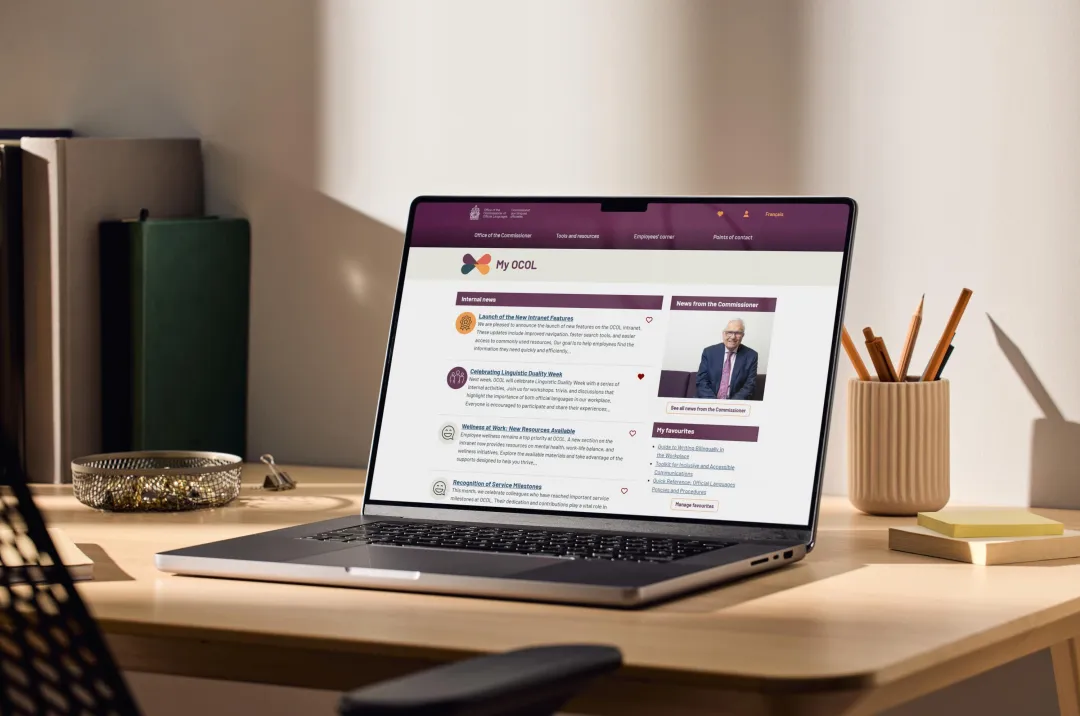
Technical Specifications
Drupal version:
Key modules/theme/distribution used:
